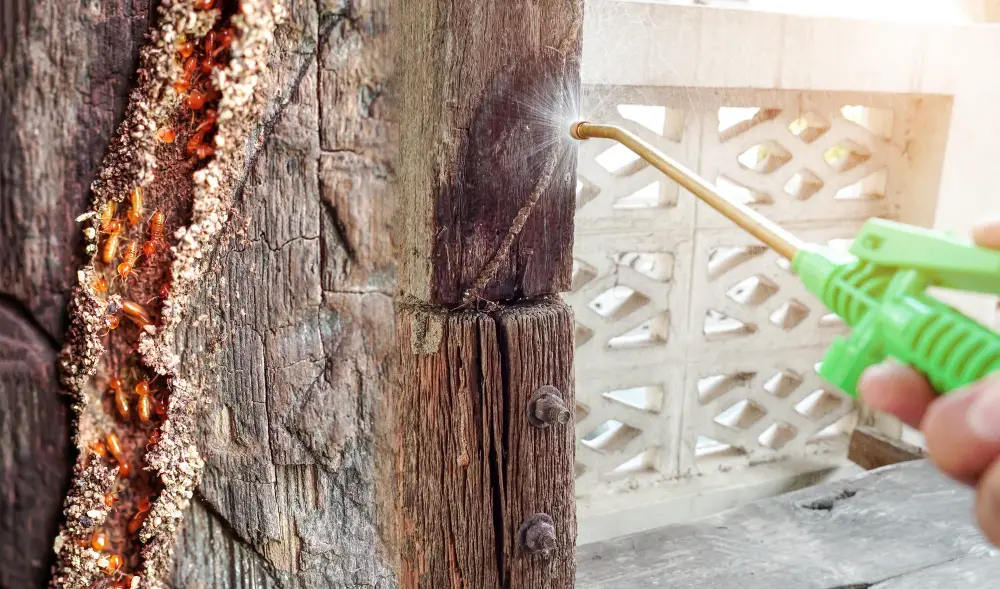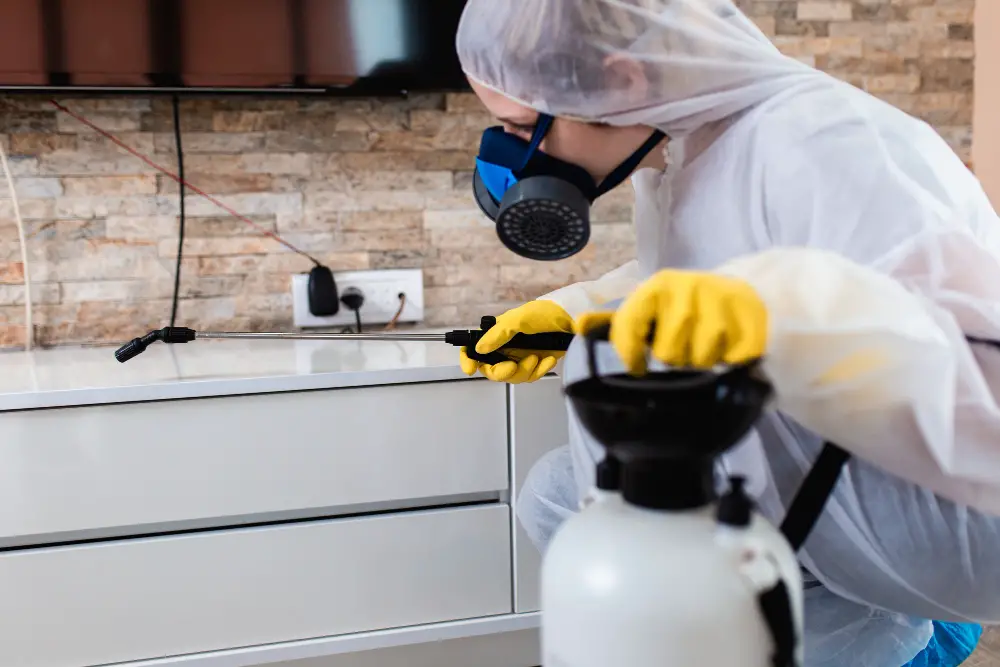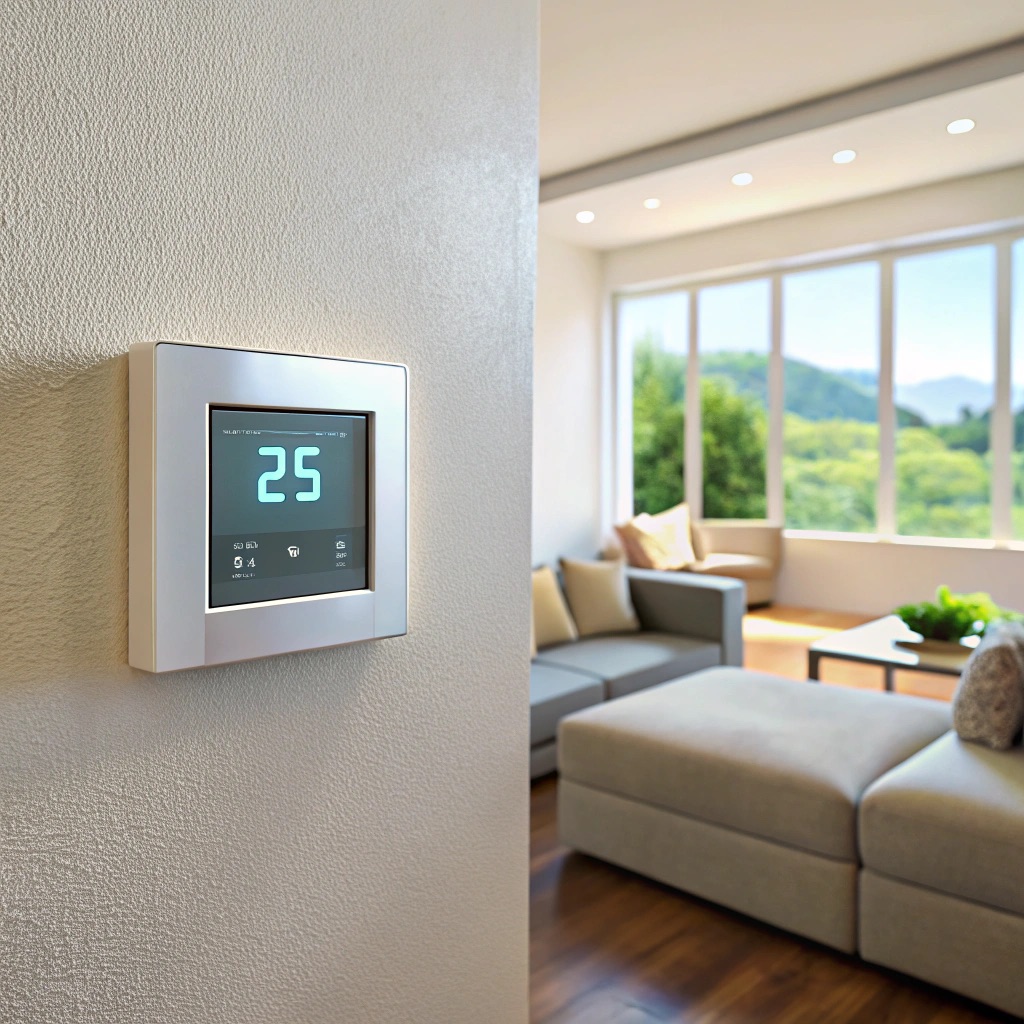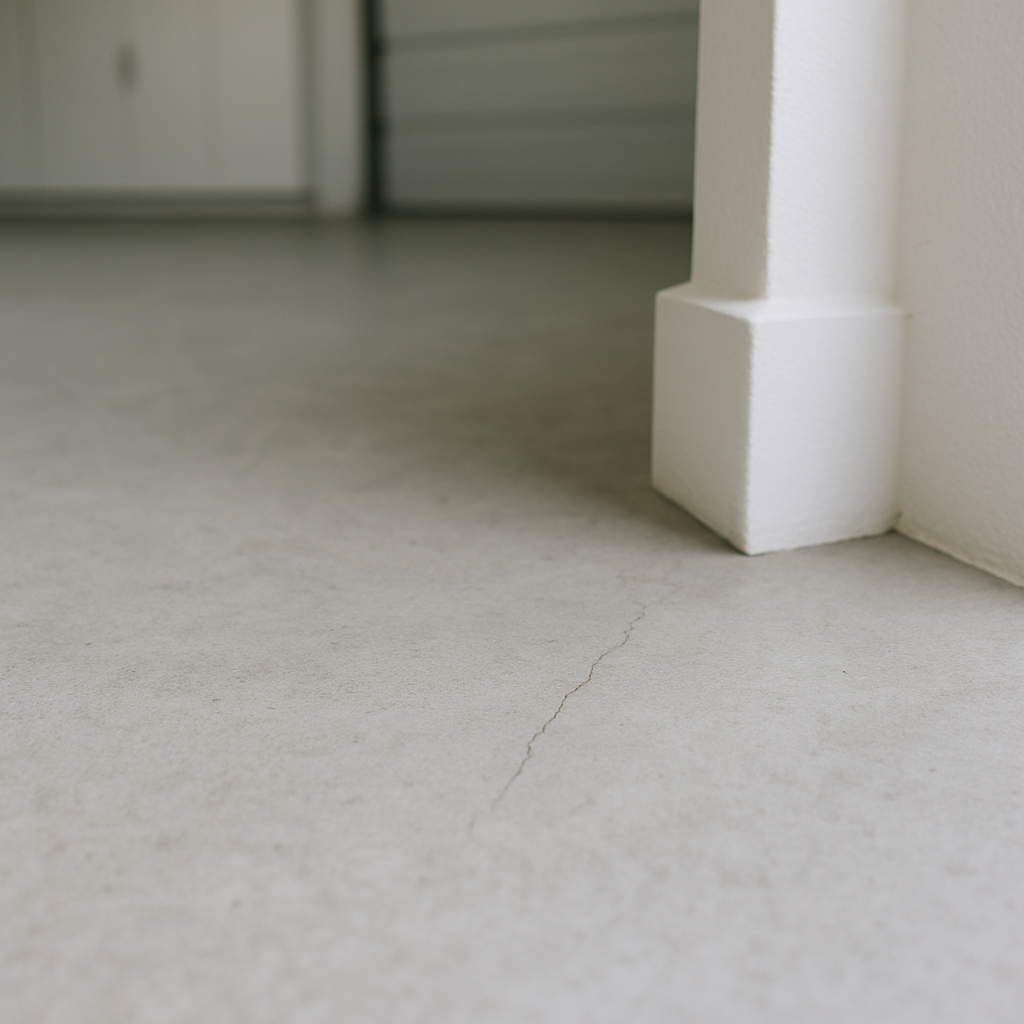Last updated on
Pesky pests can create more than just an annoyance – they can cause a major problem for your home. Whether it’s ants, rodents, or even larger creatures like bats and raccoons, they all have the potential to spread disease, damage property, and invade personal spaces.
Knowing how to recognize when pests are present in your home is key to protecting yourself and preventing any long-term damage from taking place. In this blog post, we’ll discuss the signs of pest damage and how to manage and prevent infestations effectively.
What's Inside
Signs of Pest Damage

Pests can cause a wide range of damage, depending on the type of pest and its behavior. For example, termites can wreak havoc on the structure of your home, while rodents can chew through wires and insulation. Effective pest management begins with the ability to identify signs of infestation. Some common signs of pest damage include:
- Gnaw marks or holes in wood and other materials
- Droppings or urine stains
- Chewed electrical wires or cables
- Damaged insulation or wiring
- Unusual sounds like scratching or scurrying
- Nests or nesting materials in storage areas
- Damage to outdoor gardens or landscaping
If you notice any of these signs, taking action immediately is essential. Ignoring the presence of pests can lead to further damage and costly repairs.
Managing Pests in Your Home

If you suspect pests have taken up residence in your home, acting quickly is important. The first step is to identify the type of pest and its behaviors. This will help determine the best action for effectively managing the infestation. Here are some tips on how to keep pests out of your home:
Keep a Clean and Clutter-free Home
Pests are attracted to food and water sources, so ensure your kitchen and dining areas are clean and all food is stored in sealed containers. Cluttered homes provide a perfect hiding place for pests.
Hence, getting rid of unnecessary items and organizing your space can discourage pest presence. Regularly cleaning your home, especially the hidden corners and hard-to-reach places, can eliminate potential nesting spots. Lastly, regular waste disposal is crucial as accumulated garbage can attract many pests.
Seal Cracks and Openings
These gaps can serve as entry points for various pests, including insects and rodents, allowing them to infiltrate your home undetected. Regularly inspect your home’s interior and exterior walls, doors, windows, and vents for any gaps, and seal them promptly with silicone-based caulk or steel wool.
In addition, check for openings around pipes and cables entering your home, as these are often overlooked pathways for pests. Creating a barrier against these unwanted guests can significantly reduce the likelihood of an infestation.
Store Food Properly
Various pests, such as ants, cockroaches, and rodents, are attracted to exposed food sources and can easily infiltrate containers that are not appropriately sealed. Therefore, storing food in airtight containers and promptly refrigerating perishable items is important.
Additionally, ensure that your kitchen countertops, dining tables, and floors are free of food residues, as even the smallest crumbs can attract pests. Always remember that a clean and well-organized kitchen is your first defense against potential pest invasions.
Remove Standing Water
Puddles, pools, and damp areas can serve as breeding grounds for various pests, including mosquitoes, cockroaches, and rodents. Regularly check and clear your gutters and downspouts, repair leaky pipes or faucets, and adequately maintain household plants to prevent overwatering.
Also, monitor potential water accumulation points such as buckets, birdbaths, or pet water dishes. Maintaining a dry and unfavorable environment can deter pests and protect your home from potential infestations.
Hire a Professional Pest Control Service
If you’re dealing with a persistent or severe infestation, it’s best to seek the help of a professional pest control service. These experts have the knowledge and tools to handle pest problems effectively and safely, often using methods not readily available to the general public.
They can accurately identify the pest type, assess the extent of the damage, and determine the most effective treatment strategy. Regular maintenance visits by a pest control service can also help monitor your home for new infestations and treat any issues before they escalate. Ultimately, investing in professional pest control is an investment in your home’s long-term health and safety.
Pests can cause significant damage to both your home and your health. By recognizing the signs of pest infestation and taking preventative measures, you can protect yourself and your property from these unwanted invaders.
Remember, when it comes to managing pests, early detection is key – so be sure to regularly inspect and maintain your home for any signs of pest activity. Stay informed and take action to keep your home pest-free. So, stay vigilant and don’t let pests make your home theirs.
Taking small steps now can save you from potential headaches and costly repairs in the future. Remember these tips and enjoy a safe, clean, and pest-free home.




